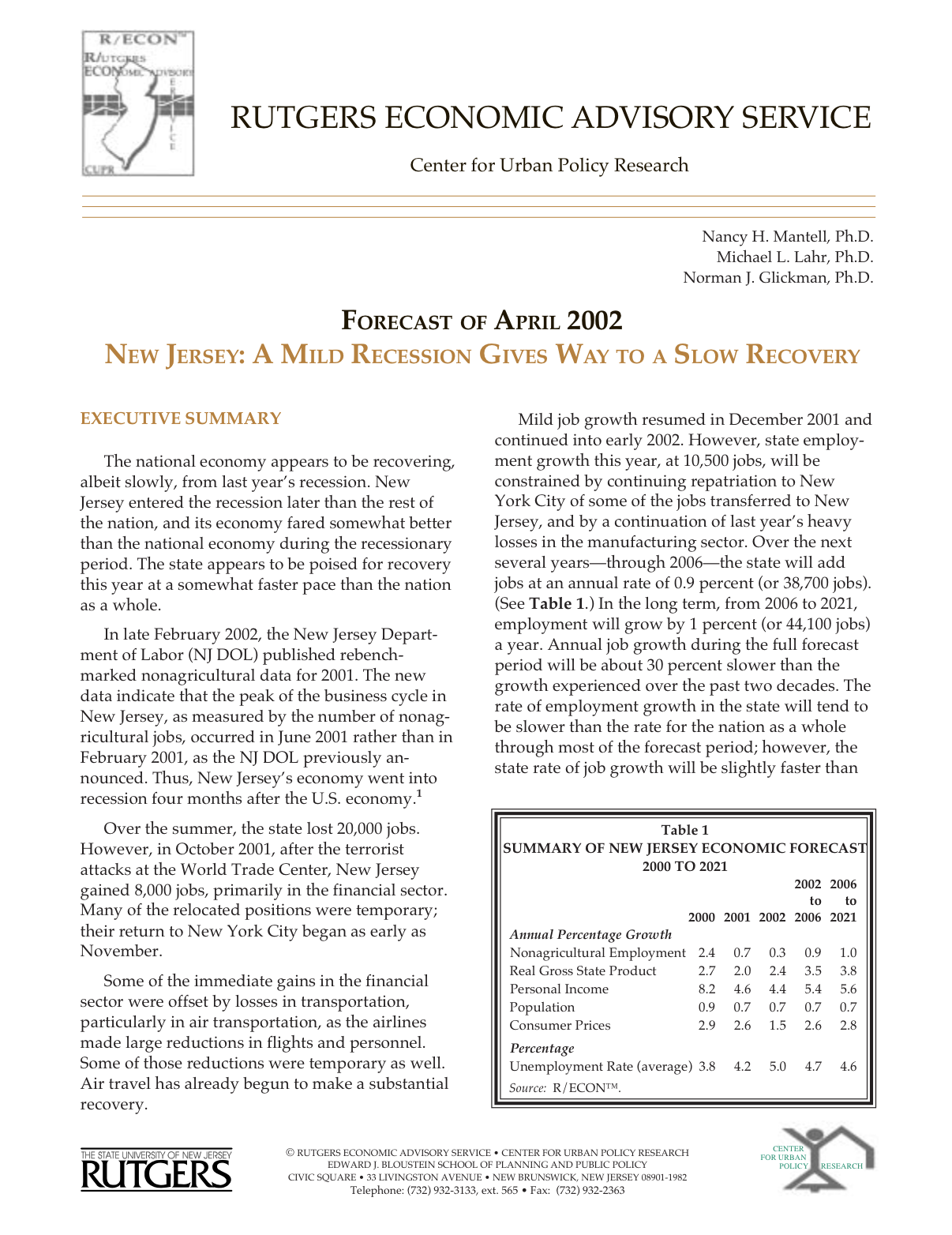The national economy appears to be recovering, albeit slowly, from last year’s recession. New Jersey entered the recession later than the rest of the nation, and its economy fared somewhat better than the national economy during the recessionary period. The state appears to be poised for recovery this year at a somewhat faster pace than the nation as a whole. In late February 2002, the New Jersey Depart- ment of Labor (NJ DOL) published rebench- marked nonagricultural data for 2001. The new data indicate that the peak of the business cycle in New Jersey, as measured by the number of nonag- ricultural jobs, occurred in June 2001 rather than in February 2001, as the NJ DOL previously an- nounced. Thus, New Jersey’s economy went into recession four months after the U.S. economy.1 Over the summer, the state lost 20,000 jobs. However, in October 2001, after the terrorist attacks at the World Trade Center, New Jersey gained 8,000 jobs, primarily in the financial sector. Many of the relocated positions were temporary; their return to New York City began as early as November.
Forecast of April 2002 New Jersey: A Mild Recession Gives Way to a Slow Recovery
Citation:
Mantell, N.H., Lahr, M.L.,Glickman, N.J. (2002). Forecast of April 2002 New Jersey: A Mild Recession Gives Way to a Slow Recovery. Rutgers Economic Advisory Service. Center for Urban Policy Research at the Edward J. Bloustein School of Planning and Public Policy.
